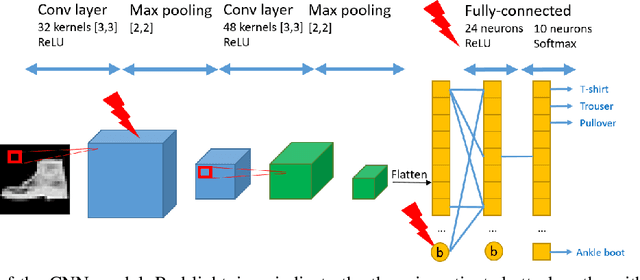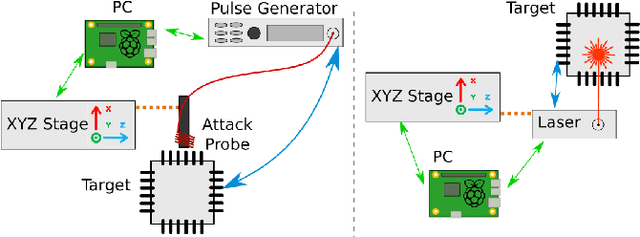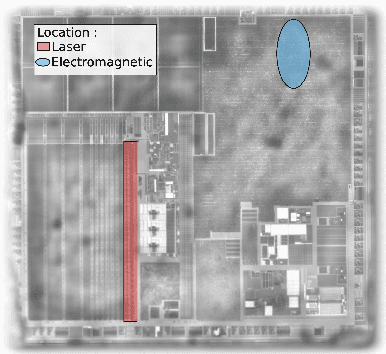Fault Injection on Embedded Neural Networks: Impact of a Single Instruction Skip
Paper and Code
Aug 31, 2023



With the large-scale integration and use of neural network models, especially in critical embedded systems, their security assessment to guarantee their reliability is becoming an urgent need. More particularly, models deployed in embedded platforms, such as 32-bit microcontrollers, are physically accessible by adversaries and therefore vulnerable to hardware disturbances. We present the first set of experiments on the use of two fault injection means, electromagnetic and laser injections, applied on neural networks models embedded on a Cortex M4 32-bit microcontroller platform. Contrary to most of state-of-the-art works dedicated to the alteration of the internal parameters or input values, our goal is to simulate and experimentally demonstrate the impact of a specific fault model that is instruction skip. For that purpose, we assessed several modification attacks on the control flow of a neural network inference. We reveal integrity threats by targeting several steps in the inference program of typical convolutional neural network models, which may be exploited by an attacker to alter the predictions of the target models with different adversarial goals.
 Add to Chrome
Add to Chrome Add to Firefox
Add to Firefox Add to Edge
Add to Edge